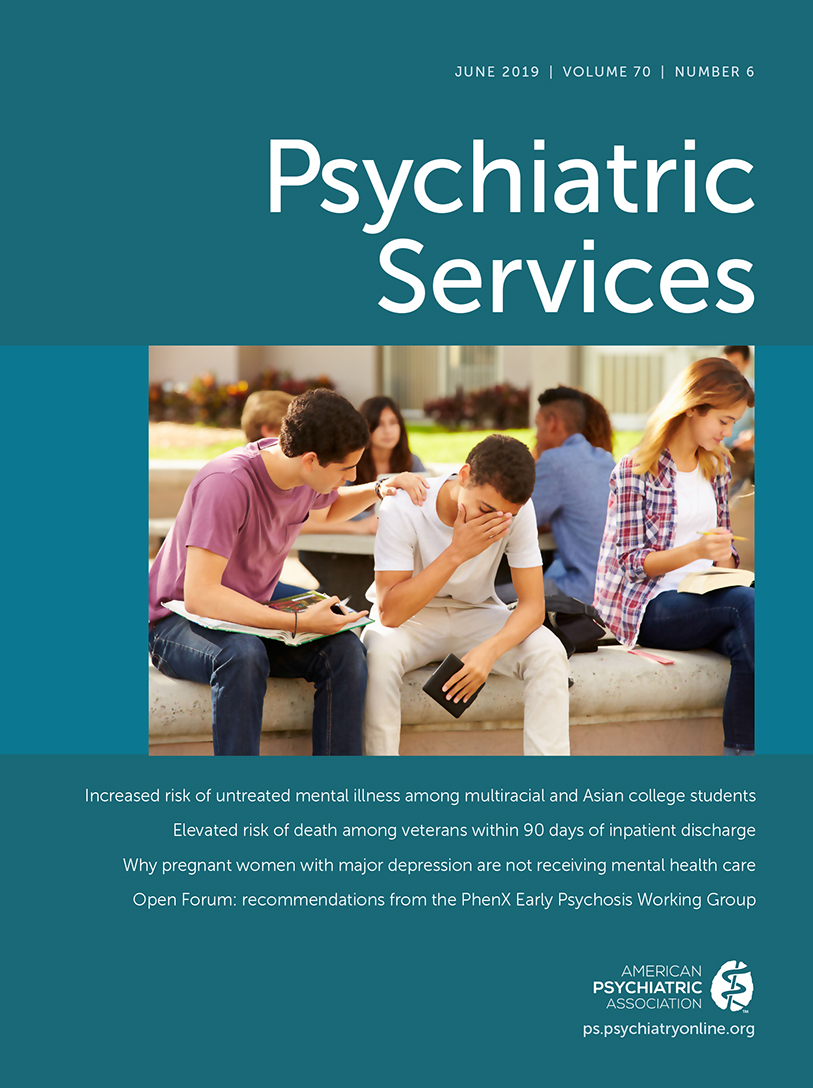The Policy Debate on Medicaid’s IMD Exclusion Rule (Continued)
TO THE EDITOR: I am writing in response to the policy debate on Medicaid’s Institutions for Mental Diseases (IMD) Exclusion Rule debated in the January issue of Psychiatric Services (1, 2). I applaud the authors for taking on this important topic and would like to add to the debate. The real solution to these issues cannot be found solely through IMD beds but rather through the development of a full continuum of care that combines inpatient, outpatient, and crisis options in proportion to the actual needs of the community in which they aspire to serve. I support an IMD waiver as an interim step to create a clear pathway to evolving community-based crisis service continua throughout the nation with the understanding that sole reliance on larger hospitals is not the answer in the long run.
The call for better access to acute mental health services is a result of crowded emergency departments, a lack of ability to connect to care, law enforcement frequently serving as a mental health response team, and jail census escalation over the past several years. Unfortunately, crisis services that incorporate a no-wrong-door approach to accepting all referrals are rare, but resources are now publicly available to pave the path. The CrisisNow.com Web site of the National Association of State Mental Health Program Directors includes the National Action Alliance for Suicide Prevention’s clearly defined exceptional crisis practice standards, and resources on the site help quantify the needs of any community. As the Centers for Medicare and Medicaid Services (CMS) communication noted, “States participating in the SMI/SED demonstration opportunity will also be expected to commit to taking particular actions to improve community-based mental health care” (3). Mary C. Mayhew, deputy administrator and director for CMS, stated that “CMS strongly encourages states to include in their application a thorough assessment of current availability of mental health services throughout the state, particularly crisis stabilization services” (4).
RI International commends CMS on the expectation that states will improve their capacity to track the availability of inpatient and crisis stabilization beds, helping connect individuals in need with an appropriate level of care as soon as possible—an expectation that aligns fully with the Substance Abuse and Mental Health Services Administration’s current comprehensive psychiatric crisis bed registry development program. Real-time data exchange is available and offers significant advantages over traditional bed registries that periodically self-report into a Web portal. Use of standardized, evidence-based, and publicly available patient assessment tools such as the Level of Care Utilization System or the Child and Adolescent Service Intensity Instrument will generate data that can drive referral pathways and system design based on the needs of individuals in each community.
I hope that CMS expects the use of actual admission and discharge data to provide insight into available real-time capacity. Creating a fit between clinical need and services naturally lowers costs significantly. Creating a responsive system will also ensure that the model built during the waiver period is self-sustaining as a lower-cost crisis alternative to traditional care that better aligns with the assessed need of the population experiencing a crisis.
1 : Medicaid’s Institutions for Mental Diseases (IMD) Exclusion Rule: a policy debate—argument to retain the IMD rule. Psychiatr Serv 2019; 70:4–6Link, Google Scholar
2 : Medicaid’s Institutions for Mental Diseases (IMD) Exclusion Rule: a policy debate—argument to repeal the IMD rule. Psychiatr Serv 2019; 70:7–10Link, Google Scholar
3 CMS Announces New Medicaid Demonstration Opportunity to Expand Mental Health Treatment Services [press release]. Baltimore, Centers for Medicare and Medicaid Services, Nov 13, 2018. https://www.cms.gov/newsroom/press-releases/cms-announces-new-medicaid-demonstration-opportunity-expand-mental-health-treatment-servicesGoogle Scholar
4 Mayhew MC: SMD 18-011 RE: Opportunities to Design Innovative Service Delivery Systems for Adults With a Serious Mental Illness or Children With a Serious Emotional Disturbance [Letter to State Medicaid Director]. Baltimore, Centers for Medicare and Medicaid Services, Nov 13, 2018. https://www.medicaid.gov/federal-policy-guidance/downloads/smd18011.pdfGoogle Scholar



